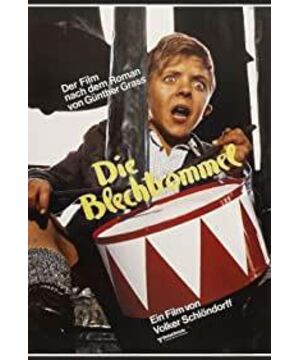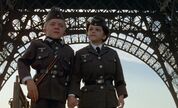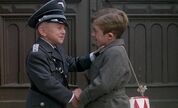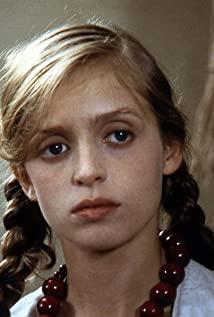From today's point of view, I simply feel that Oscar is definitely a stock market expert today. Think about it, he can take the initiative to refuse to grow when Europe is gradually entering a turbulent era, so as to effectively avoid risks, and after the situation improves To grow up again and enjoy the "bonus" of the new era, his life "risk" management ability is amazing. A three-year-old child, playing a tin drum with a naive appearance, has already felt all kinds of absurdity and ugliness in the adult world, such as the "hook-up" of uncle and mother, so there is no need to sing "I don't want, I don't want, I don't want to grow up." Big", he simply fell from a height and stopped growing, so that he could continue to beat the tin drum, the symbol of a three-year-old child, and calmly observe an adult world that is gradually getting out of control. Judging from the subsequent developments, he made the right choice. Look, then came the rise of the Nazis, in which the Danzig region of Deborah, where Oscar lived, was squeezed, and there was the noise of Nazis as fanatical as his father (at least in name), and as his uncle The same (perhaps his father) appeared to be very knowledgeable, very patriotic youth resistance. In those days, as an adult, it was a painful choice to make a choice. You could choose to join forces with the Nazis, domineering for a while, and then be ruthlessly repaired by the flames of time and revenge; you could choose to resist, reject the Nazis, Or be crushed directly, or suffer for a while and then raise your eyebrows; you can choose a middle route and be a man with your tail tucked in. In short, as an adult, you have to be tossed and uneasy in that era.
And our Oscar, he is a child in appearance, but he has gradually brought the cunning of an adult as he grows up. Because of his child-like appearance and not being Jewish, he didn't seem so painful during the rampant Nazi years. After all, in the hail of bullets, who would have the kung fu to compete with a child. So, in the battle at the post office, the adults were killed one after another, but he was carried away from the chaotic battlefield by an adult. Because of this, he can watch the world on the sidelines, see with his eyes, and tell his own story with his somewhat eccentric voice. Everything in his eyes was so ridiculous, but the smile made people helpless and powerless. And his ability to break glass with his shouting and the performance experience he brought him made the film more absurd. Oscar is a troublemaker in the adult world. With his drums, with his voice, when When others can't stand the "noise" brought by the drums, they are already deep in the turmoil of a turbulent era, and they seem so deep that they can't stand the voice conveyed by a "child". Shattering the glass was at first his protest, a protest against any attempt to take away his tin drum, which was a symbol of his childhood, because with a drum he could row with the adult world. Clear boundaries, you can witness this era from the perspective of a bystander. His life experience was pleasant in that era, although there was a love story with some tragic meaning in his performance experience, but ironically, he also took on the color of a broom star, and many people close to him were "Killed" by him, while he still beats the snare drum and the twisted and grotesque reality.
Throughout the film, Schlondoff maintains an absurd "cynic" style. The actor who plays Oscar is well chosen. He should be a child, but his eyes have a sly taste, and in the dialogue he The voice of the actor seems to be a bit intentionally "distorted", making the whole character image very special, very similar to the Oscar image that the original book tried to express. The picture of the whole film is not to pursue beauty, but to be realistic in absurdity, so the picture always seems a little depressing, and the absurd story is staged in the background of such a picture, which has a sour and dark humorous meaning. strong. In short, the film reflects the world in the eyes of a child in Danzig who is reluctant to grow up, but it is a collective memory of World War II, which is a painful memory. The husband did not express it in a tragic atmosphere, but from the perspective of Oscar, which seemed sad but not hurt, but more deeply rooted in the hearts of the people.
Some people have said that growth is a process of loss, especially in a turbulent era. You have lost the right to be protected, but you have to try your best to protect yourself and others. When Oscar's relatives, who protected him as a child, died, and when the war died down, he began to choose to continue to grow. Refusing to grow up may also be a helpless choice for Oscar, and it reflects the wishes of people in the turbulent times at that time. Just like when Europe fell into a long dark night, Zweig sadly recalled the past century of peace in Europe in "Yesterday's World". good times. Compared with World War II, it was a few months of innocence, and the refusal to grow up was a reflection of people's nostalgia and cherishment of the beautiful past, and Oscar began to grow up again, and began to grow up in the pain of another fall, Perhaps it can be seen as people's bright hopes for the future after a period of misery. After all, after shunning in adversity, growth continues, after stalling in hardship, life continues, and everyone wants it to be better.
http://hi.baidu.com/doglovecat/blog/item/1f2b33879b45fd2bc65cc38b.html
View more about The Tin Drum reviews











